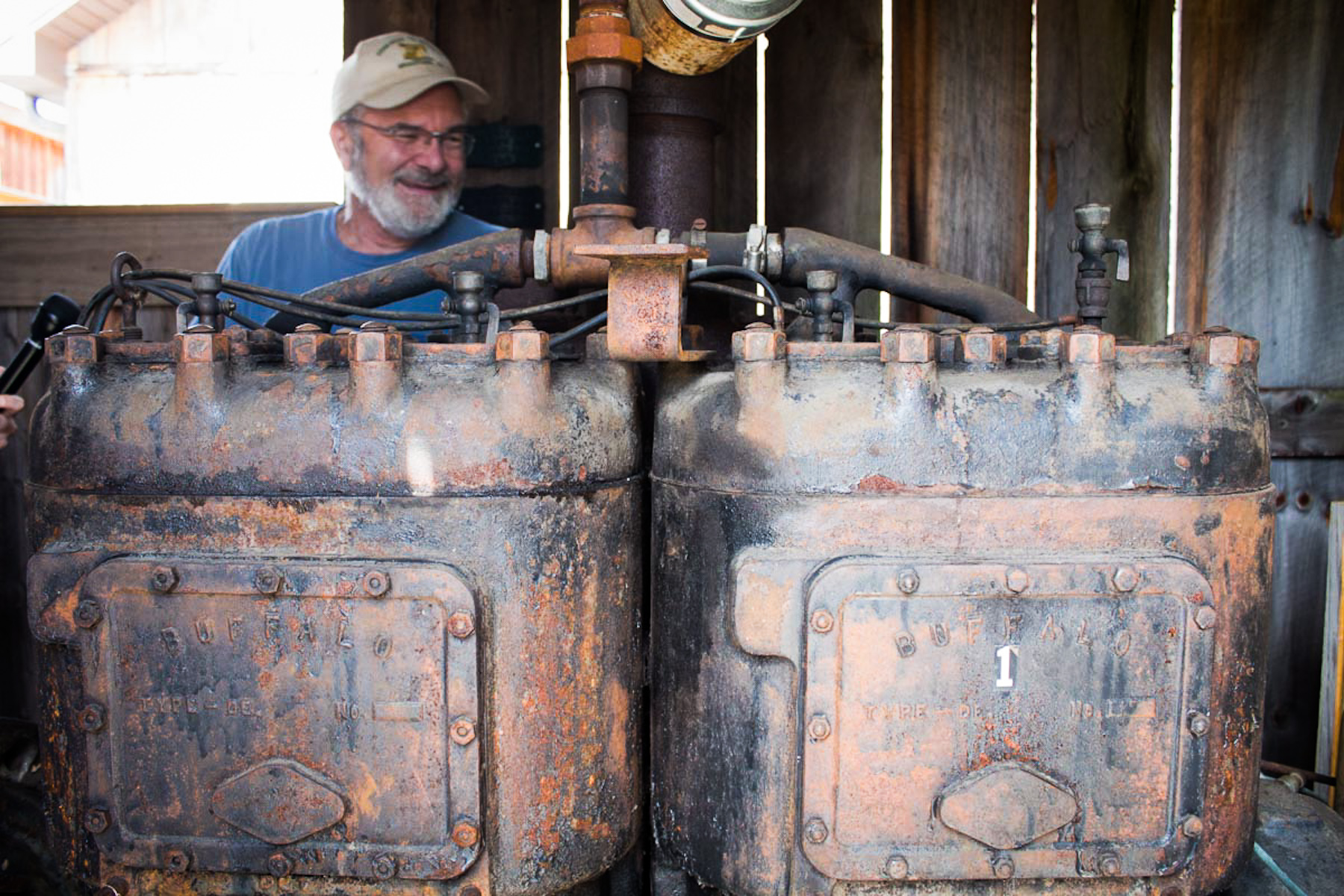This story was originally published on November 13, 2015.
Bradford, Pennsylvania is home to one of the more unusual living relics of the state’s oil past: A 140-year-old oil well that is positioned square in the path of a McDonald’s drive-thru. And though most people calling out orders for burgers and fries don’t even notice, it’s actually still pumping oil.
This well is one of thousands of wells that were drilled during Pennsylvania’s oil boom in the 1860s and 70s. It’s producing Pennsylvania Grade Crude, a variety only found in Pennsylvania, West Virginia, Ohio and New York. It doesn’t look like typical, black crude oil. This stuff is clearer, yellowed and waxy. Pennsylvania Crude is used to make cosmetics and pharmaceuticals, to varnish wood and moisturize hair. And Mark Cline—the well’s owner and president of the Pennsylvania Independent Petroleum Producers Association—is proud of it.
“[It’s] the best oil in the world,” Cline says. “The city tried to get it out of here. McDonald’s tried to get it out of here. But we’re never gonna move it.”
LISTEN: Inside the World of Small Oil
Pennsylvania’s shale gas and hydraulic fracturing boom has eclipsed much of what small, independent oil producers first built here in the 19th century. But some of those old-time producers are hanging on. More than 5,000 still strip oil from straight, vertical wells, using a complex system of engines and pumps. It’s a technique well-owner Tom Miller’s family has used for generations.
“When I was 16 years old, I worked in a drilling rig on a four-to-midnight shift in the summer,” Miller says. “That was because I wanted to learn how to do it.”

Independent oil producer Tom Miller checks out one of the more unusual relics of Pennsylvania’s oil industry: A independently owned oil well that sits behind a McDonald’s restaurant in Bradford, Pennsylvania. The 140-year-old oil well, which is still active, has survived despite McDonald’s requests to the owner to have it removed from the middle of its drive-thru. Photo: Kevin Brown
For Miller, like many who are keeping this legacy industry alive, it’s a culture around which they’ve built their lives. In fact, each year, dozens of independent oil producers gather for a picnic in Titusville, Pennsylvania to celebrate this shared heritage. Titusville is a special place to them: It’s where Edwin Drake drilled the first successful oil well in 1859. But now, many are worried their line of work could become a thing of the past.
“The whole industry is about to die because these new regulations are so bad that we can’t comply with them,” says Mark Cline, owner of the McDonald’s well.
The regulations he’s talking about come from the Pennsylvania Department of Environmental Protection (DEP). As drilling in the Marcellus Shale has boomed, the DEP has been updating its rules for all oil and gas drillers. Cline and other traditional producers say their industry is being hit unfairly. They say the state already had rules for their kind of drilling, and they shouldn’t have to comply with expensive new ones meant for the shale industry.
“Now, all of these environmentalists come out of the woods with all these crazy ideas that we’re destroying the world. You can see looking around here, there was oil everywhere.”

Pennsylvania Grade Crude Oil is found only in Pennsylvania, West Virginia, Ohio and New York. It doesn’t look like typical, black crude oil. It’s clearer, yellowed and waxy. Photo: Kevin Brown
But Scott Perry, who runs the DEP’s oil and gas office, says the new regulations are necessary to prevent groundwater contamination and air pollution. Perry says he does respect the historical contributions of smaller producers though, and that DEP distinguishes them from producers using fracking.
“We think we’ve tailored our regulatory program to address those environmental concerns to really an appropriate level for these smaller businesses,” Perry says.
For Brian Black, a professor of history and environmental studies at Penn State Altoona, it’s remarkable these producers have survived this long.
“There’s nobody else like them anymore,” Black says. “They are having to figure out: Can they survive in a global energy economy? Is there a place for them?”
Mark Cline faces that question every day. After he finishes pumping at the McDonald’s well, he heads down the road to his family’s oldest well. It was drilled in 1880 and still produces three-quarters of a barrel of bubbly, yellowed Pennsylvania Crude every day.
“To do that, you’d think it would all be gone,” Cline says. “But it’s just here, day after day after day. It just amazes me.”
###
UPDATE: Since this story aired, the state of Pennsylvania has exempted smaller oil producers from new rules for the big wells in the Marcellus and Utica shales. The state has formed a new committee — the Penn Grade Crude Development Advisory Council — to help create rules for these small, independently owned wells.


